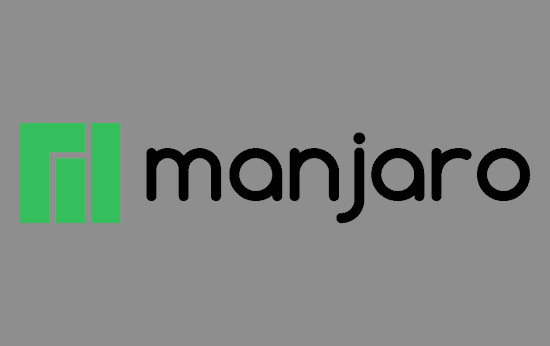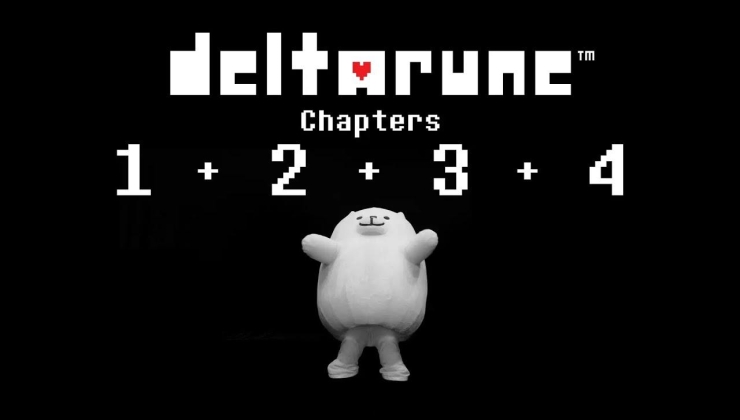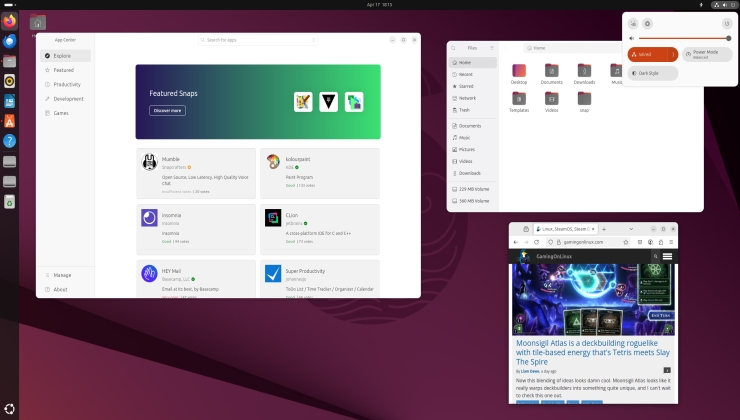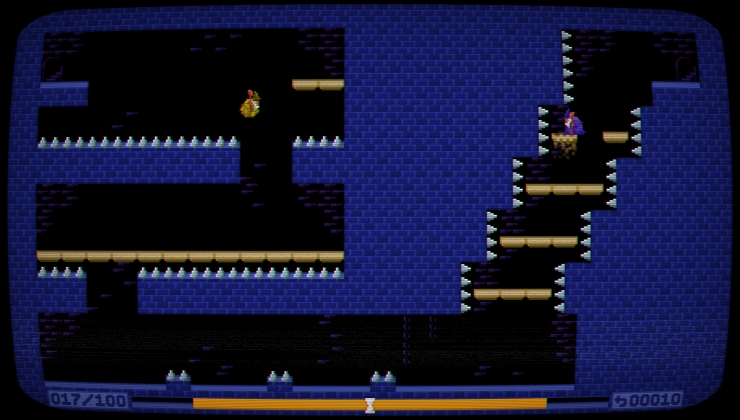It was on this day 30 years ago that a younger Linus Torvalds announced a free operating system to the comp.os.minix group and from there it exploded across servers, desktops and plenty more.
Now one of the most popular operating systems in the world, you can find it nearly everywhere you look including 100% of the top 500 supercomputers. There's a Linux distribution for everything, and Linux is what will also be powering the upcoming Steam Deck with Valve using SteamOS that's based on Arch Linux. What Torvalds said "won't be big and professional like gnu" has changed the world.
We might not have reached the "year of the Linux desktop", which is a running joke, but there's no denying the great strides the Linux desktop has made over the last few years thanks to many companies and individual contributors. The desktop share is different depending on where you look with StatCounter giving it 2.38% while NetMarketShare put it at 1.79% - both higher if you decide to include ChromeOS which is Linux-based.
The Linux desktop is even now a truly viable gaming platform - something many thought would probably never happen. Thanks to various major game engines and toolkits supporting Linux, drivers constantly improving, lots of native Linux games, Steam Play Proton and more. According to the latest figures from Valve, Linux is sitting at 1% right now of Steam users polled. Perhaps the Steam Deck will bump that up, depending on how Valve include it in their survey.
Happy Birthday, Linux. Here's to another 30 and beyond.
What does Linux mean to you? Let us know in the comments.
(Look forward to my upcoming blog post, "MacOS, how do I loathe thee? Let me count the ways…"
Last edited by Philadelphus on 26 Aug 2021 at 12:49 pm UTC
After growing up exclusively with Windows (never even used a Mac), I discovered when I started my astronomy degree that no one in astronomy uses Windows (it's all Linux or macOS). I remember being a bit weirded out and repulsed when I first installed Ubuntu and tried to use it back in 2010 (I've just discovered I even wrote a [very angry blog post](https://physicistfarmer.blogspot.com/2010/09/linux-justlinux.html) about it+ Click to view long quote). However, through exposure to it at work and the help of a very knowledgeable good friend, by 2014 when I built my first gaming desktop I put Linux Mint Debian Edition on it and haven't looked back since. Other than a switch to Debian and a graphics card upgrade from my brother I'm still typing on that very desktop (ok, I also had to replace a RAM module that failed), though I'm hoping to finally do some major upgrades next year. I also just discovered that I wrote [a blog post](https://physicistfarmer.blogspot.com/2016/08/happy-birthday-linux.html) five years ago for Linux's 25th birthday complaining about using Windows 8 at work (which I genuinely do not remember using at this point), so how the tables have turned!
(Look forward to my upcoming blog post, "MacOS, how do I loathe thee? Let me count the ways…")
Thanks for sharing! Did you ever write up what made you change your mind this much? :)
After growing up exclusively with Windows (never even used a Mac), I discovered when I started my astronomy degree that no one in astronomy uses Windows (it's all Linux or macOS). I remember being a bit weirded out and repulsed when I first installed Ubuntu and tried to use it back in 2010 (I've just discovered I even wrote a very angry blog post about it+ Click to view long quote). However, through exposure to it at work and the help of a very knowledgeable good friend, by 2014 when I built my first gaming desktop I put Linux Mint Debian Edition on it and haven't looked back since. Other than a switch to Debian and a graphics card upgrade from my brother I'm still typing on that very desktop (ok, I also had to replace a RAM module that failed), though I'm hoping to finally do some major upgrades next year. I also just discovered that I wrote a blog post five years ago for Linux's 25th birthday complaining about using Windows 8 at work (which I genuinely do not remember using at this point), so how the tables have turned!
(Look forward to my upcoming blog post, "MacOS, how do I loathe thee? Let me count the ways…")
Well, that first blog post didn't age well! But back in 2010, Linux was a very different beast. It was around then that I started dual-booting though, having only run Linux on a spare laptop until then, from around 2005. But it took me another 3 and a half years before I felt that Linux (Ubuntu back then) had matured to the point that I could make the jump full time.
Then Steam launched, and I just bit the bullet. Haven't looked back, nor will I ever.
One day we somehow borked the DOS installation (it must have been a stupid minor mistake like deleting CONFIG.SYS while trying to adjust SoundBlaster IRQ values or something like that). I convinced my friend that if we formatted the harddrive, and reinstalled DOS, everything would be fine.
... and that was the end of the poor guy's dual-boot setup.
Whenever I plug in a USB at work, it tells me there's something wrong with the USB and I need to fix it. Then it works fine. I made the mistake of letting Windows try to fix it once, thinking maybe there was actually something wrong. It ratfucked my USB. These days at work I'm getting multiple popups per day telling me I'm supposed to be updating software. I'm not supposed to be updating software, the IT people update the software. But evidently they are not able to get Windows (or maybe its closed source software ecosystem) to shut up, because you don't control Windows, Microsoft does. So many annoying little things, mostly stemming from that basic fact: Microsoft controls Windows, and they use it for their ends, to meet their needs, not yours.+ Click to view long quote
OMG, this! Though I haven't had it ratfuck my USB drives yet, it does always insist something is wrong with them...
Oh and our IT knows they're being annoying, because the majority of the people I work with on my side of things use Macs. I can't stand them, mainly because they try so hard to be a good Linux Desktop, but insist on being an Apple one... So I ended up with a Windows laptop, and when there is an update pending, they start with an hourly 'your computer needs to be restarted to update' and then gets nastier as it goes and tells you if there are 20 notifications, they'll just reboot. Thing is, in my job, there are times when I'm working a full 24 hours straight trying to get things done... if Windows ever rebooted in the middle of that, that Dell is going to be defenestrated!
Reminder to myself; Visit Finland and discover the land of our forefather 😅
I'll never forget my first 'experience' (?!) with Linux. I must have been 1993 (or early 1994) at the latest. I had a friend whose father was a math professor; at his home office he had a nice 486 with a DOS partition, as well as a Linux partition. On this PC he'd let us play games (mostly Civilization).+ Click to view long quote
One day we somehow borked the DOS installation (it must have been a stupid minor mistake like deleting CONFIG.SYS while trying to adjust SoundBlaster IRQ values or something like that). I convinced my friend that if we formatted the harddrive, and reinstalled DOS, everything would be fine.
... and that was the end of the poor guy's dual-boot setup.
I saw Enlightenment DR13 on the web and wanted a prettier desktop, that started my road down the Linux path.
I saw Enlightenment DR13 on the web and wanted a prettier desktop, that started my road down the Linux path.
"up" is the word you've been searching for! ;)
I remember the first time we tried Redhat 3.2 on a friend's computer, who just got it on a magazine, and as it was supposed to be "incredibly stable" compared to Windows... and how we managed to freeze the whole system in 3 minutes, simply by... inserting an audio CD (to be sure, we even rebooted and reproduced it
Since then, I tried several times to give Linux a chance to convince me: Mandrake (later renamed to Mandriva), Suse, Debian, Ubuntu, Puppy,... each time, the result was the same: nothing works, you're supposed to type commands like on the Amstrad from my childhood, and hope the documentation vaguely found on the internet is not obsolete...
But, in september 2019, I was looking again for a Linux distro, to be a replacement for Windows 7. I tried several, and found that Linux Mint was actually useable out-of-the-box (and with a nice DE too: Cinnamon). Then, I found out about Manjaro, which has a Cinnamon edition, and also, the AUR, which is probably one of the best selling point from a Windows user point of view: no need to manually (try to, ahem
And that's what made me switch. And seeing like 40% of my games in Steam were Linux native (and most of the one I was playing at the time: Dead Cells, Wizard of Legend, Slay the Spire,...) made me stay
[...](I've just discovered I even wrote a [very angry blog post](https://physicistfarmer.blogspot.com/2010/09/linux-justlinux.html) about it)[..]
I read it, and I found a lot of similarities with my past experiences with Linux, so it's not only you
[...]
ETA: Outside of gaming, I think Linux is perfect. You can do virtually anything you can imagine. While it is true that Adobe products present an issue, there are other powerful alternatives like Davinci Resolve.
While I agree that DaVinci Resolve is a great software (I am not a video editor though), I guess it is not enough to make a lot of people make the switch.
Also, when it comes to music production, Linux is still very far from being a viable alternative ; even if I hope that Bitwig releasing their DAW for Linux will help change this in the future.
Windows and I were never going to be friends. Win XE was the last time I used a Windows-only laptop. Slow and stupid, it would sometimes hang like it just forgot what it was doing, or start doing some random thing I'd not asked it to: "Got a term paper to write? Great! That's a great time to check the disk integrity!" CTRL + ALT + DEL, and even the power button wouldn't always make it stop, so I would just yank the power cord from the wall outlet. An OH-YEAH?-WELL-FUCK-YOU! shut down, I called it.
Without Linux's speed and transparency, I would game on a console and that would be the extent of my personal computing.
Happy Birthday Linux, and thank you.
Last edited by Nanobang on 26 Aug 2021 at 4:39 pm UTC
For me, Linux is now finally a sane alternative to Windows, since the end of Windows 7 support, and despite all its remaining defaults (GPU drivers, dual monitor support, gaming support, music production, random peripherals not recognized properly...).+ Click to view long quote
I remember the first time we tried Redhat 3.2 on a friend's computer, who just got it on a magazine, and as it was supposed to be "incredibly stable" compared to Windows... and how we managed to freeze the whole system in 3 minutes, simply by... inserting an audio CD (to be sure, we even rebooted and reproduced it). We had a good laugh, and put the CD back in the magazine...
Since then, I tried several times to give Linux a chance to convince me: Mandrake (later renamed to Mandriva), Suse, Debian, Ubuntu, Puppy,... each time, the result was the same: nothing works, you're supposed to type commands like on the Amstrad from my childhood, and hope the documentation vaguely found on the internet is not obsolete...
But, in september 2019, I was looking again for a Linux distro, to be a replacement for Windows 7. I tried several, and found that Linux Mint was actually useable out-of-the-box (and with a nice DE too: Cinnamon). Then, I found out about Manjaro, which has a Cinnamon edition, and also, the AUR, which is probably one of the best selling point from a Windows user point of view: no need to manually (try to, ahem) compile anything, it's all done under the hood.
And that's what made me switch. And seeing like 40% of my games in Steam were Linux native (and most of the one I was playing at the time: Dead Cells, Wizard of Legend, Slay the Spire,...) made me stay
[...](I've just discovered I even wrote a [very angry blog post](https://physicistfarmer.blogspot.com/2010/09/linux-justlinux.html) about it)[..]
I read it, and I found a lot of similarities with my past experiences with Linux, so it's not only you
[...]
ETA: Outside of gaming, I think Linux is perfect. You can do virtually anything you can imagine. While it is true that Adobe products present an issue, there are other powerful alternatives like Davinci Resolve.
While I agree that DaVinci Resolve is a great software (I am not a video editor though), I guess it is not enough to make a lot of people make the switch.
Also, when it comes to music production, Linux is still very far from being a viable alternative ; even if I hope that Bitwig releasing their DAW for Linux will help change this in the future.
Ugh, I wanted to wipe my Arch install last night!
1) I have Librewolf installed... since it's from AUR it has to compile. Well it actually made YouTube stutter while it compiled (I have a AMD 5900X), first time in a long time I've seen anything do that.
2) it took so long to compile still, and I was doing other things, that it then prompted me for the sudo password, as enough time had gone by where it'd need to be re-authenticated. Problem was, I didn't notice it prompting for a while, and it gave up. Guess what that means? I get to recompile Librewolf again...
Pretty sure I removed that at one point because it was taking so long to compile, and this isn't the first time it's done this to me...
Anyhow, the AUR is still questionable in my mind, and even the Arch devs don't readily recommend it. So if you're going to use AUR, keep it to a minimum, it's far too easy for malware to be installed on your system with it. Also the packages get orphaned randomly when people decide they don't want to keep maintaining the PKGBUILD. The fortunate part is the PKGBUILDs are simple and most should be able to read / write them.
[...]
Anyhow, the AUR is still questionable in my mind, and even the Arch devs don't readily recommend it. So if you're going to use AUR, keep it to a minimum, it's far too easy for malware to be installed on your system with it. Also the packages get orphaned randomly when people decide they don't want to keep maintaining the PKGBUILD. The fortunate part is the PKGBUILDs are simple and most should be able to read / write them.
Yes, I know, but from my understanding, the same is true with PPA, for example.
And without AUR:
- No easy Skype
- No easy DaVinci Resolve
- No easy Mangohud / GOVerlay
- No easy Heroic Game Launcher / Gamehub
- No easy Blender / Phoronix benchmarks
And of course a lot other useful tools that are equivalent to what I had in windows, with the same ease of installation / removal
Seriously, if I had to manually install / compile each of those, I would probably be using Windows 10 by now...
2) it took so long to compile still, and I was doing other things, that it then prompted me for the sudo password, as enough time had gone by where it'd need to be re-authenticated. Problem was, I didn't notice it prompting for a while, and it gave up. Guess what that means? I get to recompile Librewolf again...
Why on earth would you have to recompile it again just because the sudo prompt timed out? Just install the built package with `pacman -U`.
Incidentally, consider setting `passwd_timeout` in your sudoer defaults if you find the default 5m timeout too short. A value of 0 disables the timeout.
1) I have Librewolf installed... since it's from AUR it has to compile. Well it actually made YouTube stutter while it compiled (I have a AMD 5900X), first time in a long time I've seen anything do that.
Not Arch thing as such, could be just that if compilation uses enough threads it can consume all available cores (though usually not technically threads, but end result is still the same). It uses the available resources efficiently that way, but there's less resources available for everything else.
There's remedy though that I use. I prefix CPU and IO heavy operations with following snippet
nice -n 20 ionice -c3Just remember to add the heavy operation to the same line, those commands won't do much on their own.
Nice affects CPU scheduling and processes with higher nice value get allocated less CPU time. It's more of a suggestion, not a hard priority. Still helps though.
Ionice affects IO priority, -c3 assigns idle priority. It might not be necessary most of the time as IO is not usually a bottleneck. If you move files between disks, it's though very useful. I had quite laggy command line when I was doing just that operation and using ionice fixed it totally.
Best scenario would be to be able to set both priorities in configuration somewhere, so you don't have to think about those things.
Last edited by Anza on 26 Aug 2021 at 8:44 pm UTC
Thanks for sharing! Did you ever write up what made you change your mind this much? :)Not sure I ever have, really (might make a good post topic!).
Well, that first blog post didn't age well! But back in 2010, Linux was a very different beast.Ha, agreed. I'd forgotten about that post until I went looking yesterday; just a few short years later and I'd be a complete convert. (To be somewhat charitable to my past self, I was a complete newbie to the command line and I was trying to install a specialized astronomical software package that I'm certain was a lot more complicated than "apt-get install iraf"†, so it was the kind of situation pretty much guaranteed to cause frustration.)
* Which I'd just discovered earlier that year (2010), due to not having internet faster than dial-up till mid-2009.
† I don't remember the specifics now, but I wouldn't be surprised if it involved compiling stuff, which I'd also never done and even now would prefer to avoid.
+ Click to view long quote2) it took so long to compile still, and I was doing other things, that it then prompted me for the sudo password, as enough time had gone by where it'd need to be re-authenticated. Problem was, I didn't notice it prompting for a while, and it gave up. Guess what that means? I get to recompile Librewolf again...
Why on earth would you have to recompile it again just because the sudo prompt timed out? Just install the built package with `pacman -U`.
Incidentally, consider setting `passwd_timeout` in your sudoer defaults if you find the default 5m timeout too short. A value of 0 disables the timeout.
Probably because I didn't notice until I had told it to restart the computer because I was going to do something in Debian, and it compiles to a temp dir.
+ Click to view long quote[...]
Anyhow, the AUR is still questionable in my mind, and even the Arch devs don't readily recommend it. So if you're going to use AUR, keep it to a minimum, it's far too easy for malware to be installed on your system with it. Also the packages get orphaned randomly when people decide they don't want to keep maintaining the PKGBUILD. The fortunate part is the PKGBUILDs are simple and most should be able to read / write them.
Yes, I know, but from my understanding, the same is true with PPA, for example.
And without AUR:
- No easy Skype
- No easy DaVinci Resolve
- No easy Mangohud / GOVerlay
- No easy Heroic Game Launcher / Gamehub
- No easy Blender / Phoronix benchmarks
And of course a lot other useful tools that are equivalent to what I had in windows, with the same ease of installation / removal
Seriously, if I had to manually install / compile each of those, I would probably be using Windows 10 by now...
1) is in Flatpak/flathub
2) DaVinci Resolve asks for a registration; so how is AUR doing it?
3) I'm surprised GOVerlay hasn't at least been packaged as a binary.
4) I won't support Epic :P
5) Blender has easy install. Phoronix should really package their stuff for ARCH.
But yeah, do you check the PKGBUILDs for custom patches every time you install it? Because it'd be real easy for someone to insert malicious code this way into anything. This is why there is always the warning for AUR. Doesn't mean it's a terrible idea and shouldn't be used, just be careful with them.
Probably because I didn't notice until I had told it to restart the computer because I was going to do something in Debian, and it compiles to a temp dir.
In that case, either set PKGDEST (see 'man makepkg.conf'), or stop compiling in tmpdirs.










 How to set, change and reset your SteamOS / Steam Deck desktop sudo password
How to set, change and reset your SteamOS / Steam Deck desktop sudo password How to set up Decky Loader on Steam Deck / SteamOS for easy plugins
How to set up Decky Loader on Steam Deck / SteamOS for easy plugins
See more from me